Education Minnesota members from around the state have been engaging in political action in their locals and intermediate organizations and at the Capitol. Locals have been having meetings with legislators in their districts and Education Minnesota also hosted its 2024 Political Conference in February which included members telling stories to reinforce our legislative asks to Gov. Tim Walz and House Speaker Rep. Melissa Hortman. Read more about the conference and how to get involved in the work on pages 14-15.
The 2024 legislative session has kicked off with press conferences around important bills such as increasing school counselors to meet recommended ratios and support for aspiring educators as they currently have to pay tuition while student teaching, which limits their ability to work while in school.
At Education Minnesota’s 2017 Political Conference, then-governor candidate Walz was asked this question– what would you say to a colleague who says “I’m just not that into politics.” He said he would tell them, “Too bad, because politics is into you!”
“Educators cannot sit out of the political process. Everything we do in education is impacted by elected officials on school boards, state legislatures, state offices, U.S. Congress and all the way up to president,” said Vice
President Monica Byron at the political conference.
Find ways to engage with your legislators and get involved with the 2024 campaign at www.educationminnesota.org.
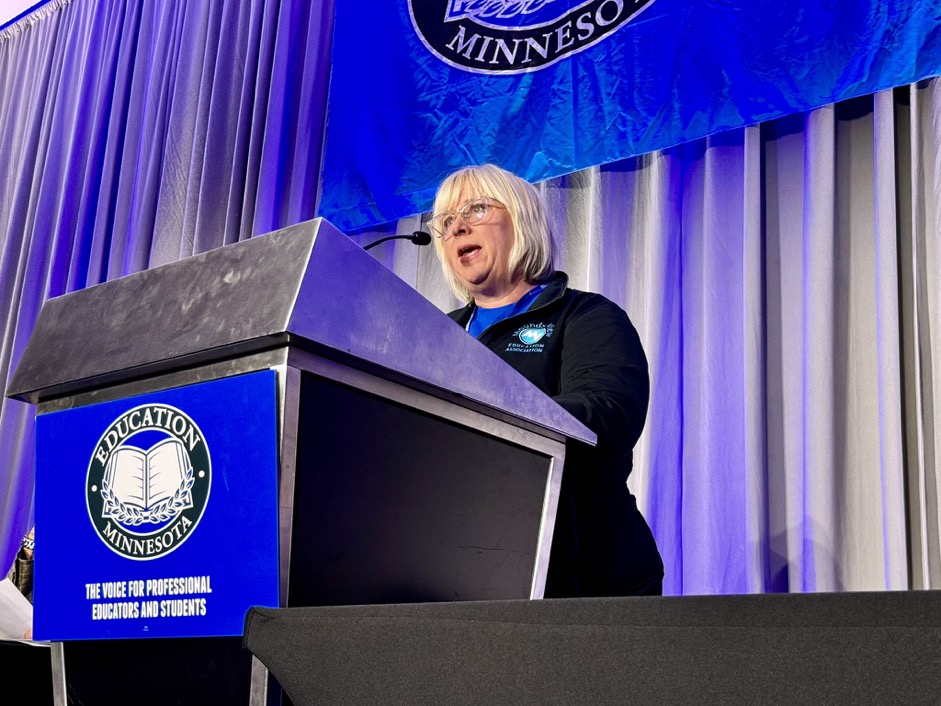
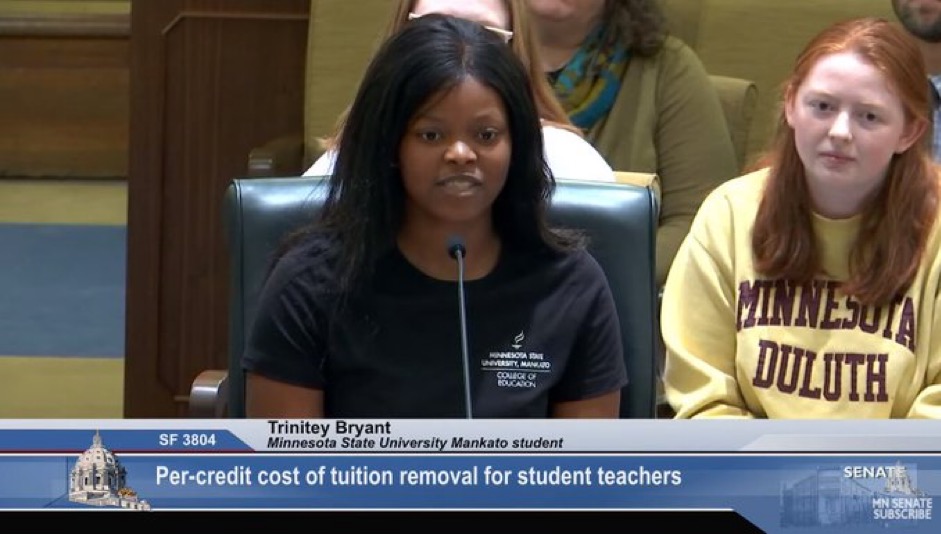
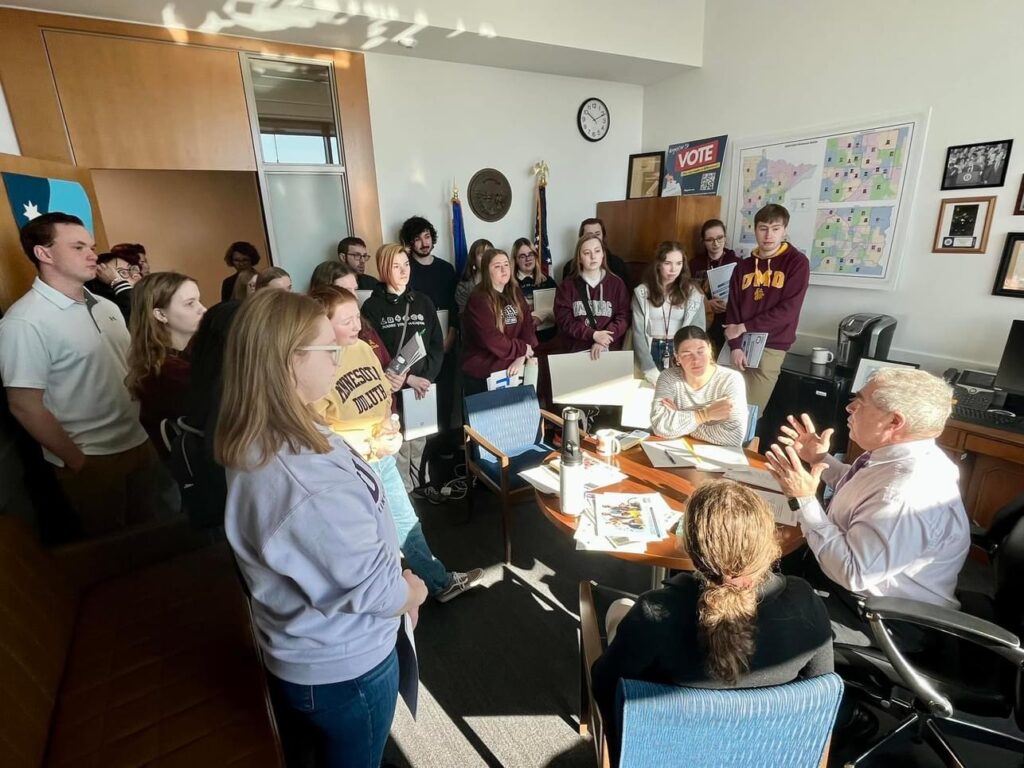
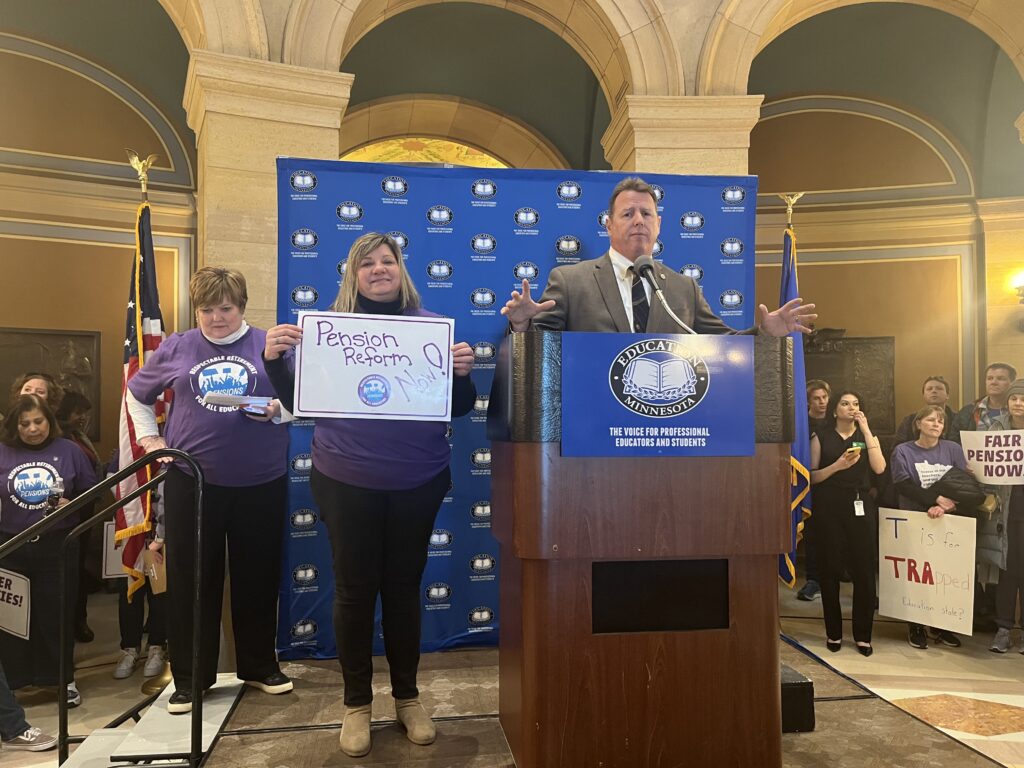
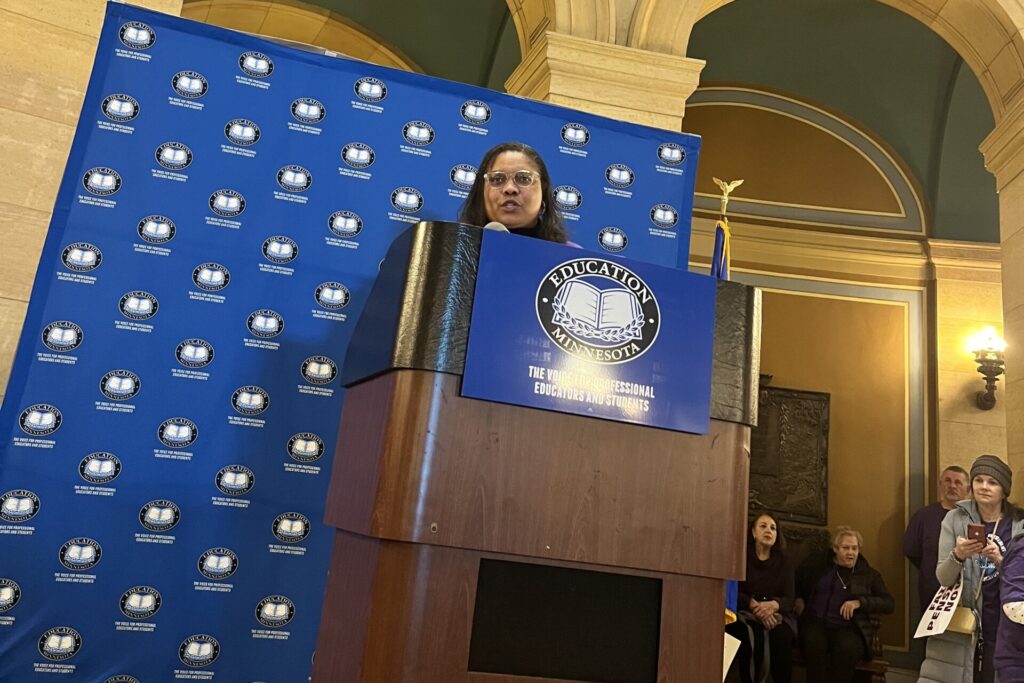

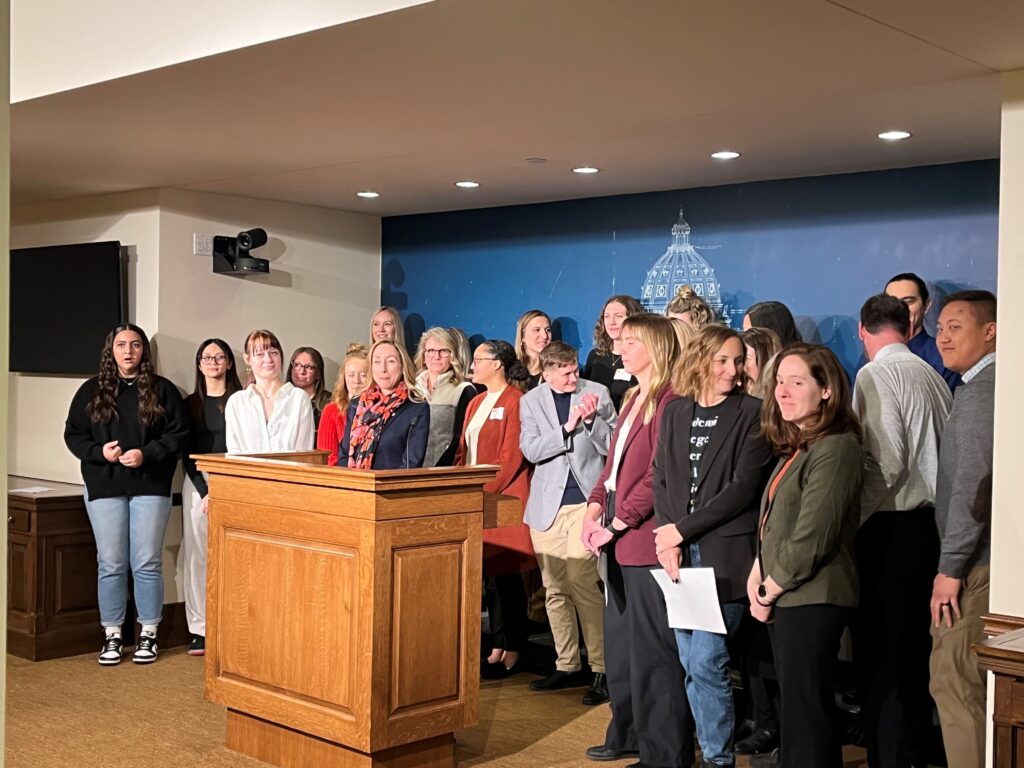
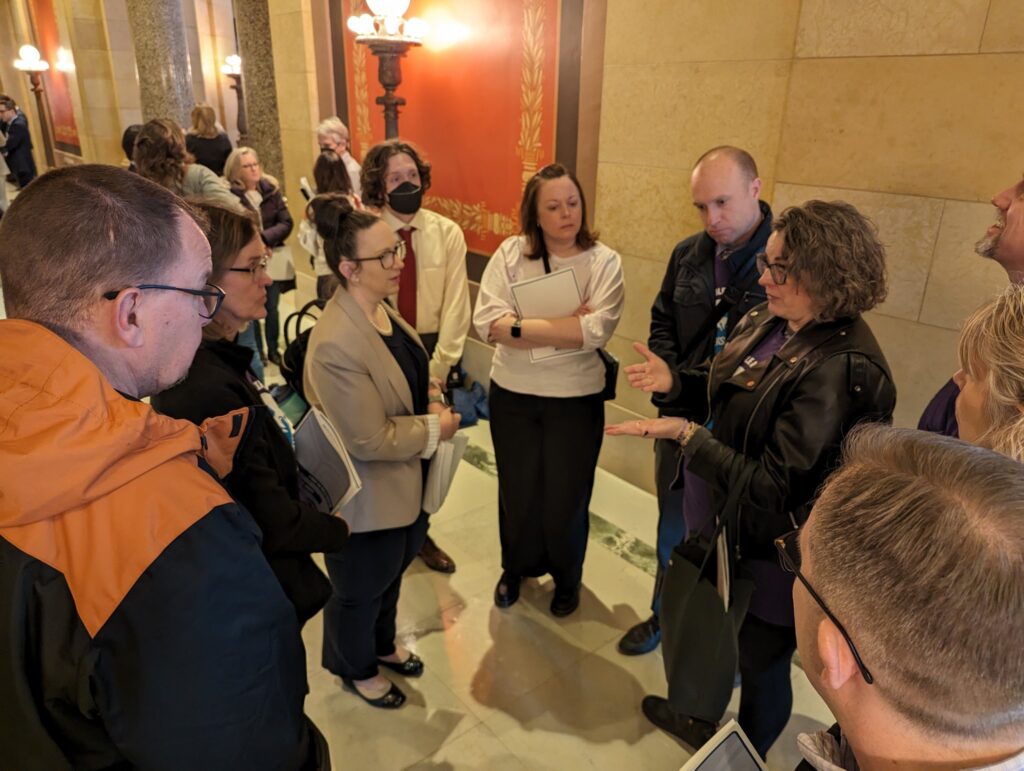
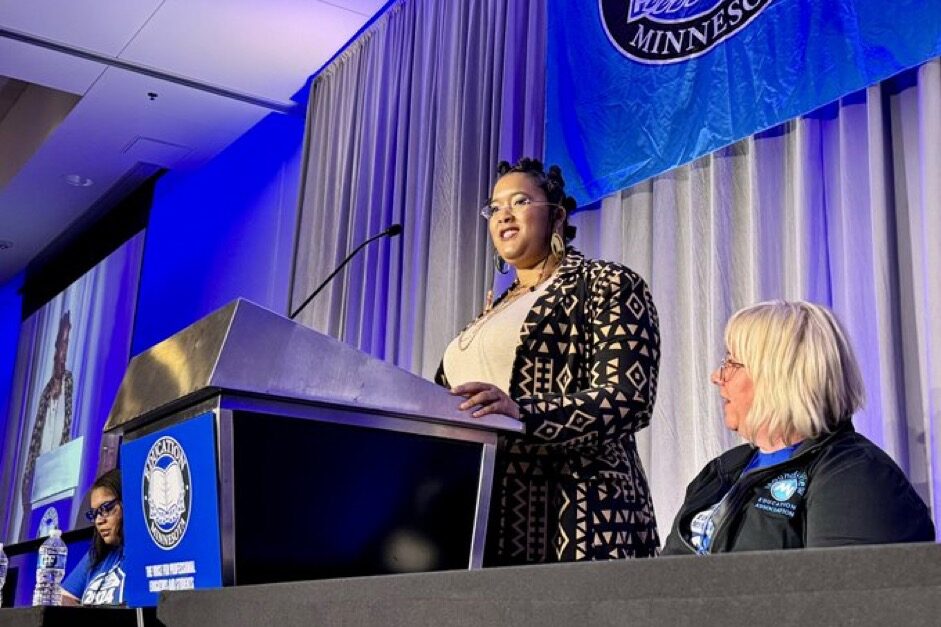
Pension bills move through Legislature
The 2024 session of the Minnesota Legislature has begun and multiple bills to support educator pensions are moving through the process. As of press time, no bill had been heard in committee this year, but multiple bills had been introduced.
The Minnesota Legislature runs on a two-year bill cycle, including a “budget” and “policy” session. Bills from last year that did not pass or were not delete-all amended are still alive for the 2024 session.
Bills from last year still alive:
HF2222/SF1938
This bill contains the large, overall recommendations from the first Pension Advisory Group, including a Normal Retirement Age of 62 or 35 years of service, COVID service credit for the 2020, 2021 and 2022 school years, and a change to a variable 1-3% COLA, tied to inflation. This is still a long-term goal, but it’s unlikely for the state budget to cover it this year. It was heard by the Legislative Commission on Pensions and Retirement.
HF3294/SF3314
This bill contains a Normal Retirement Age of 64. The bill as introduced was heard by the Legislative Commission on Pensions and Retirement. A modified version of this bill was passed as part of the taxes conference committee and will continue to be discussed this year.
Education Minnesota’s Pension Advisory Group has been working for the past several months discussing priorities and options for legislative action. The penalty reduction bill that has House and Senate authors is a result of their work. Both of the authors, Rep. Dan Wolgamott from St. Cloud and Sen. Heather Gustafson from Vadnais Heights, spoke at the Feb. 29 pension rally at the Capitol.
What the pension penalty reduction bill addresses
Current teachers, regardless of how long they’ve worked, face over-penalization of their retirement benefits before age 62.
This bill lowers penalties in the TRA Tier 2 pension plan, dropping penalties to 3% between ages 58-63. This is a targeted approach to restore some equity between Tier 1 and Tier 2, allowing educators the flexibility to retire early if they need to without losing a significant amount of their pension. A Tier 2 member retiring at age 58 after 2025 would lose 17% less to penalties if this bill passes, compared how the plan works now with NRA 65. This targeted approach allows us to address this problem effectively with less state investment needed, reflecting the budget this policy session. This is a step in the right direction that we can do this year, while the work continues in the future.
Educators who have worked decades in service to our state deserve a pension benefit that takes care of them in retirement. More than half of all licensed teachers in Minnesota have left the profession, and many mid-career teachers and licensed staff concerned about this issue are considering leaving for the private sector to build a retirement plan. If we want to combat the educator shortage, we need legislators to consider improving benefits, like pensions.
Learn more about the pension reduction bill by watching the “Teacher Pension Penalty Reduction Bill: All-Member Meeting” on MEA Online.


